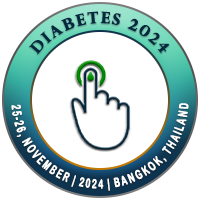
Paul Andrew Bourne
Northern Caribbean University, JamaicaTitle: An evaluation of domestic violence against jamaican women during the coronavirus disease 19 (COVID-19) pandemic
Abstract
Introduction: The first COVID-19 case in Jamaica was in March 2020; it
has been an issue since then. Objectives:
This study seeks to: (1) determine the
relationship of demographic characteristics of the respondents and domestic
violence during Covid-19, (2) examine
the factors that contribute to Jamaican women being victims of domestic
violence, and (3) evaluate whether domestic violence against Jamaican women has
increased during the COVID-19 pandemic. Methods
and materials: This study employed a quantitative web-based,
non-probability, cross-sectional and associational research design. Researchers
conducted a random sampling correlation research design to collect data from
513 Jamaican women 18 years and older across the island using a standardized
survey created using Google Forms. The
Statistical Packages for the Social Sciences (SPSS) for Windows, Version 25.0
with 95% confidence interval provided analysis of the collected data.
Findings: Of the sampled respondents (n=505), 32%
indicated being victims of domestic violence, with 60% reported being
physically abused, 8.9% reported sexual abuse, and 31.1% reported being
emotionally abused. Of the total sampled respondents, before the COVID-19
pandemic, 49% of them frequently experienced domestic violence compared to
53.1% during COVID-19. The majority of women who reported having a personality
disorder (63.6%) were domestically abused compared to other women. Furthermore, of the 513 Jamaican women
surveyed, 46.9% were between ages 18-25 years, 46.9 % employed, 68.8% lived in
rural communities, and 53.8% had a tertiary level education. In addition, most perpetrators of domestic
violence were boyfriends (98%) compared to husbands (89.7%) followed by family
members (79.3%).
Conclusion:
Intimate partner violence has intensified since the COVID-19 pandemic, which
means the home has become a battleground for women. Such a stark reality
indicates that this public health matter requires immediate attention to
mitigate further increase amid ongoing “stay at home orders” and social
isolation.
Biography
To be added

